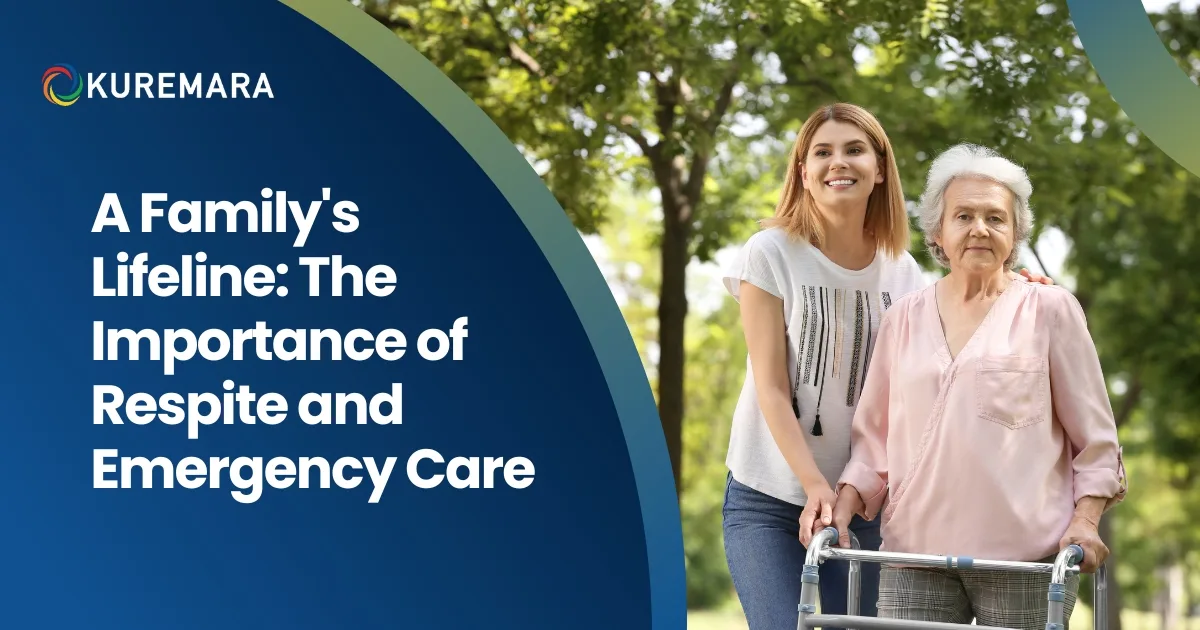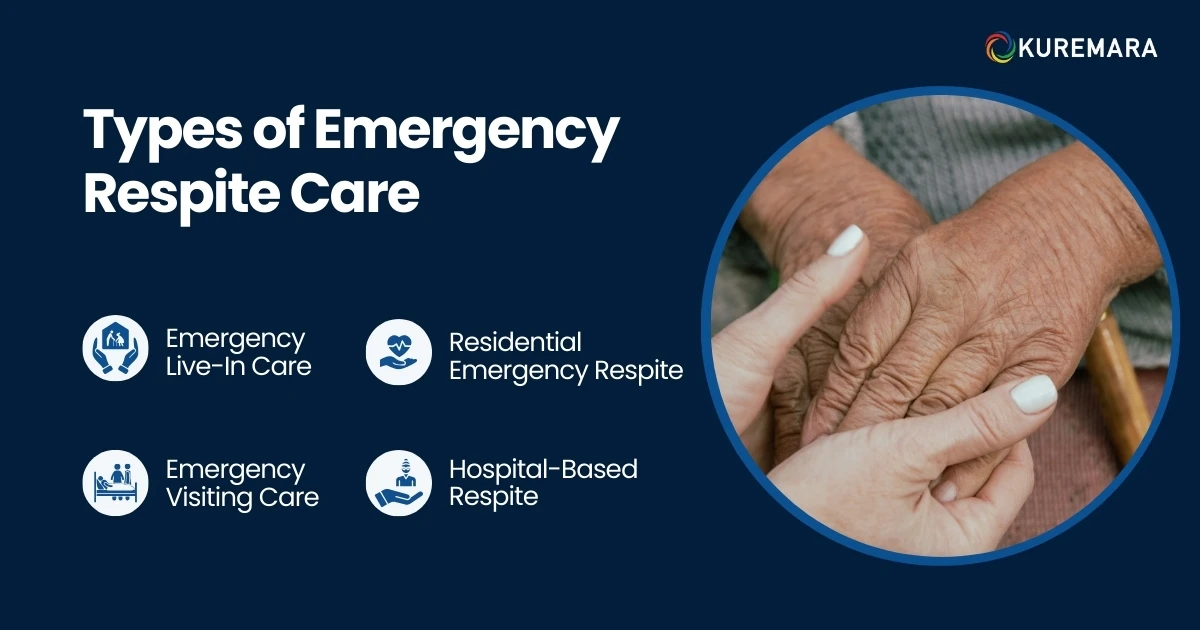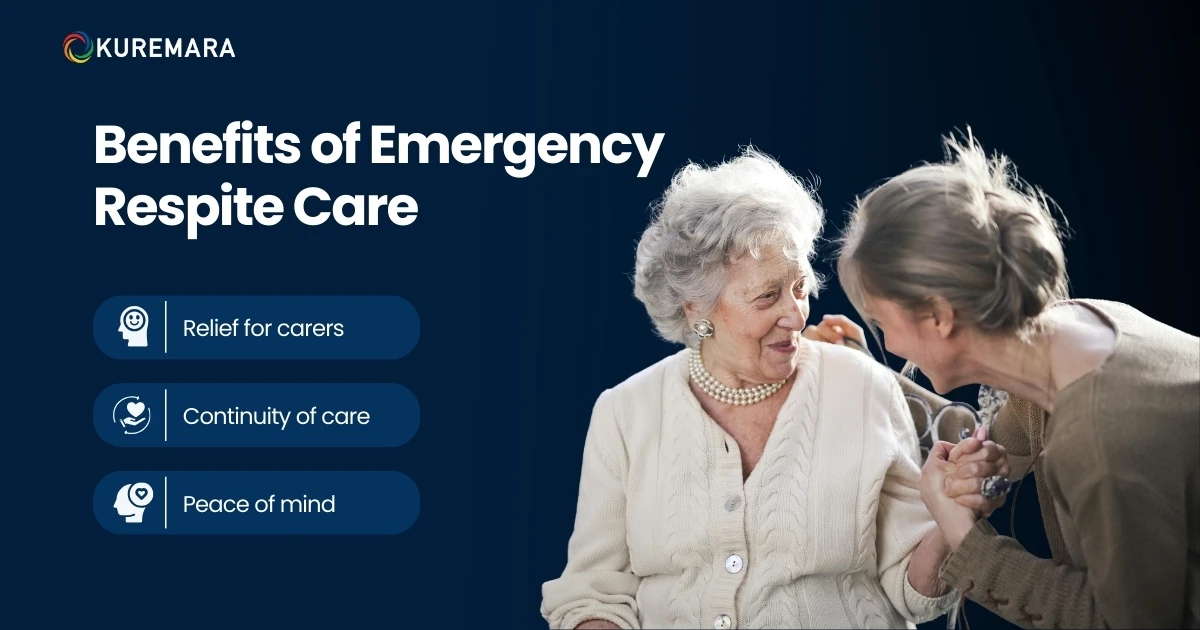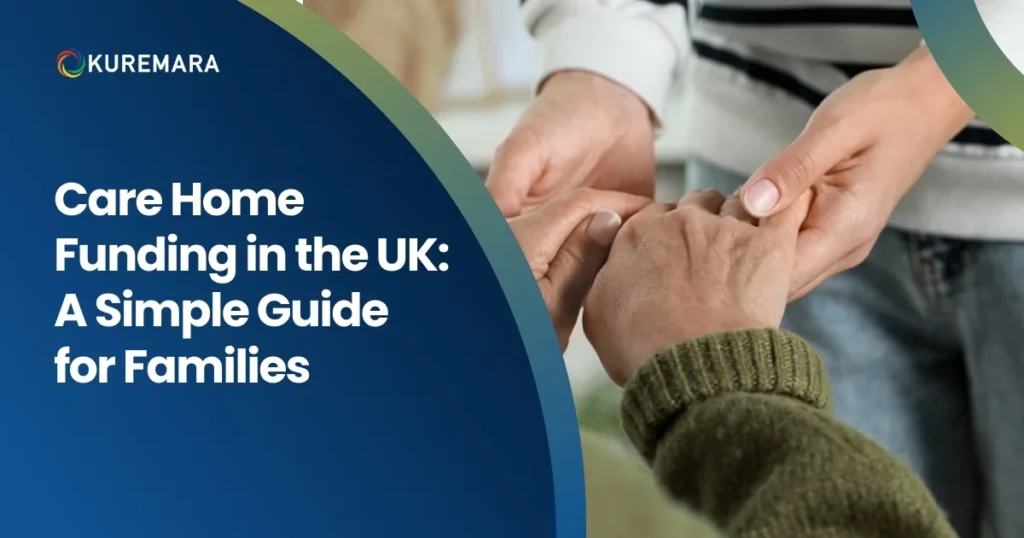
Introduction
Life can be unpredictable, and when you are caring for a loved one, unexpected situations can arise at any time. Whether it’s a sudden illness, an urgent work commitment, or a personal emergency, having access to support when you need it most can make all the difference. That is where emergency respite care steps in, as lifeline that provides relief for families and ensures the person you care for continues to receive compassionate, high-quality support.
This guide explores what emergency respite care means, how it works, the different options available, and how families can prepare for unexpected events. We’ll also share how Kuremara can provide reassurance and practical solutions in times of need.
Understanding Respite Care
Respite care is temporary support provided to individuals who need assistance with daily living, allowing their usual carers to take a break. It can be planned in advance or arranged in response to sudden changes in circumstances.
Respite care can take many forms:
- Home-based care – A professional carer visits or stays in the home to provide support.
- Day centres – Offering social activities and personal care in a group setting.
- Residential stays – Short-term placement in a care home or specialised facility.
While planned respite allows for advanced scheduling, emergency respite care is about acting quickly and effectively when an urgent situation occurs.
What Is Emergency Respite Care?
You may be wondering, what is emergency respite care? In simple terms, it is short-notice support provided when a primary carer is suddenly unable to fulfil their duties. This could be due to illness, an accident, unexpected travel, or other personal crises.
Unlike planned respite, which is booked in advance, emergency care services are designed to respond rapidly often within hours to ensure there is no interruption to a person’s care.
Types of Emergency Respite Care

1. Emergency Live-In Care
A trained carer moves into the home temporarily to provide around-the-clock assistance. This is ideal for individuals who need consistent support and wish to remain in a familiar environment.
2. Emergency Visiting Care
Carers visit at set times throughout the day to help with personal care, medication, meals, and companionship. This option suits those who need part-time assistance but can manage independently for some periods.
3. Residential Emergency Respite
When home-based care is not possible, a short-term stay in a care home or hospice can be arranged, ensuring the individual’s needs are met in a safe, supportive environment.
4. Hospital-Based Respite
Some hospitals offer short-term care solutions for people awaiting discharge or for those whose needs are medically complex.
Why Emergency Respite Care Matters
Caring for someone is a rewarding but demanding responsibility. Without proper breaks, carers can experience burnout, stress, and fatigue. Emergency respite care provides:
- Relief for carers – Allowing time to recover physically and emotionally.
- Continuity of care – Ensuring the person receiving care maintains their daily routines.
- Peace of mind – Knowing that trained professionals are providing safe, dignified, and compassionate support.
For families, especially when caring for older relatives, emergency respite care for elderly loved ones can prevent crises from escalating and ensure safety during challenging times.
Accessing Emergency Respite
* Self-Funded Options
Private care agencies can often respond the fastest, arranging care within hours. While this may involve an upfront cost, it gives families immediate peace of mind.
* Local Authority Support
In certain situations, councils can arrange and fund emergency care following a needs assessment or a carer’s assessment. However, response times and availability can vary depending on the area.
* Charitable and Voluntary Services
Some charities and community organisations offer urgent support for carers. These may be limited in availability but can be a valuable resource.
Planning Ahead for Emergencies
While emergencies are unpredictable, you can prepare in advance:
A. Create an emergency care plan – Include contact details, medical information, and care preferences.
B. Identify providers in advance – Research local agencies, charities, and council services that offer emergency respite.
C. Keep important documents ready – Such as medication lists, GP details, and power of attorney documents.
Having these resources on hand can save valuable time during a crisis.
Funding and Cost Considerations
The cost of emergency respite care varies depending on the type of service:
- Visiting care may start from around £29 per hour.
- Live-in care can range from £209–£300 per day.
- Residential emergency respite may cost £700–£1,500 per week.
Families can explore council funding, personal savings, or benefits such as Attendance Allowance to help cover costs.
To understand what funding support you may be eligible for and explore your options in more detail, please visit Costs & Funding page.
Barriers Families May Face
While there are a range of services available, families may encounter challenges such as:
- Limited availability of carers at short notice.
- Funding restrictions that delay arrangements.
- Lack of awareness about what services exist locally.
This makes it all the more important to prepare and know where to turn for help.
Kuremara: Your Trusted Partner in Emergency Respite Care
At Kuremara, we understand that emergencies don’t wait for a convenient time. Our emergency respite care services are designed to respond swiftly, with skilled carers ready to step in when families need them most.
We offer:
- Rapid response times – Arranging care within hours where possible.
- Tailored support – Whether it’s live-in care, visiting care, or short-term accommodation, we adapt to each family’s needs.
- Qualified and compassionate staff – Trained to provide respectful, person-centred care for people of all ages and abilities.
- Flexible funding options – We guide families through payment choices, including signposting to relevant funding support.
By choosing Kuremara, you gain more than a service you gain a partner committed to ensuring your loved one receives the best possible care, even in urgent situations.
Summary and Takeaways
Emergency respite care is more than a service, it’s a safety net for families navigating the challenges of caring for a loved one. Whether it’s a sudden illness, an unplanned trip, or simply the need for rest, knowing where to turn can make a difficult time easier to manage.
By understanding your options, planning ahead, and partnering with a trusted provider like Kuremara, you can ensure your family is supported whenever life takes an unexpected turn.
If you want to discuss emergency respite care or prepare an emergency care plan, contact Kuremara today. Our friendly team is here to answer your questions, offer guidance, and help you access the right care as right when you need it.




